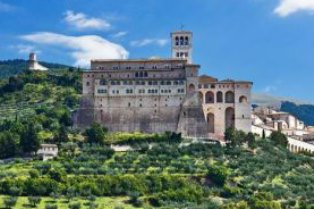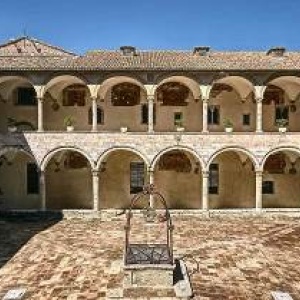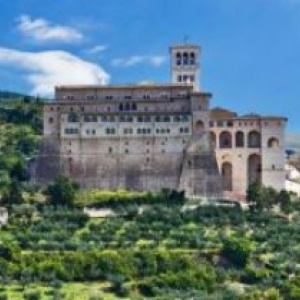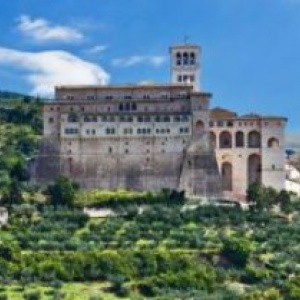
WTI Magazine #14 2014 Jan, 24
Author : italia.it Translation by:
One of the most famous towns in Italy is Assisi, a UNESCO World Heritage Site, and, above all, homeland of St. Francis, the man who renounced all his possessions in order to devote his life to helping the needy.
Dedicated to him is the splendid Basilica, one of the emblems of Christianity, located on Mount Subasio, from which it overlooks the entire valley, is dedicated to him. Apart from being a strong appeal for millions of religious believers, the Basilica is a monument of great artistic value.St. Francis's Basilica consists of two churches laid upon each other and a crypt containing the tomb of the Saint.
The Lower Basilica, with a double front portal, presents a simple facade embellished with a rose window and a mosaic. The interior is decorated with frescoes by some of the most important painters from 1200 to 1300, from Cimabue to Giotto and from the Lorenzettis to Simone Martini. The light that filters through the beautiful stained glass windows by Giovanni di Bonino and Puccio Capanna creates a very suggestive ambience.
In the Upper Basilica, it is possible to see the life cycle of St. Francis in frescoes painted by maestro Giotto, and the stories of the Old and New Testament covering the entire nave, and other wonderful frescoes by Cimabue and Torriti.
Another figure who has deeply influenced these places is Saint Clare, to whom the homonymous Basilica - presenting a facade made of white and pink stone and divided into three sections by horizontal cornices - is dedicated. The engaging interior frescoes and the remains of the Saint are visible through a window in the crypt.
The Duomo is dedicated to the other saint of Assisi, San Ruffino (St. Rufinus). It was rebuilt according to the design by Giovanni da Gubbio. The splendid Romanesque facade has three portals and, in the middle, a rose window surrounded by symbols of the Four Evangelists. The internal restructuring with three naves is attributed to Galeazzo Alessi, while works by Carlone, Giovanni Antonio Grecolini and del Giorgetti decorate the interior.
The Temple of Minerva is also a work of great interest; it is one of the best preserved Roman buildings, eventually becoming the Church of Saint Mary.






